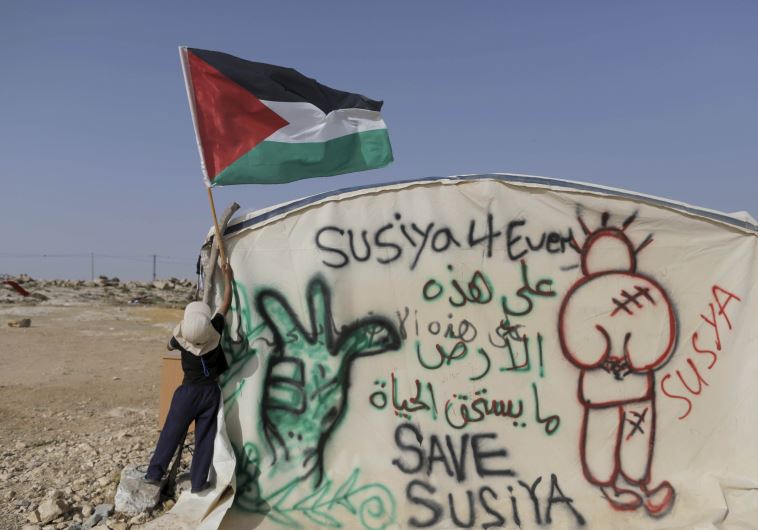IDF weighs new tool to legalize settler outposts
“As winter arrives, the imminent demolition will leave 100 people, half of them children, without shelter,” Mishriqi-Assad said.
 A Palestinian boy places a Palestinian flag on a tent in the West Bank village of SussiyaUpdated:
A Palestinian boy places a Palestinian flag on a tent in the West Bank village of SussiyaUpdated: